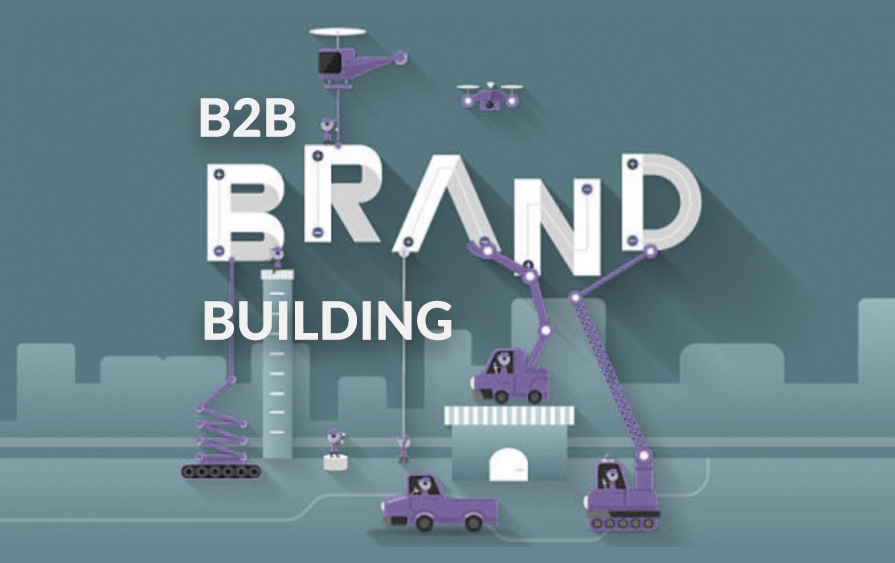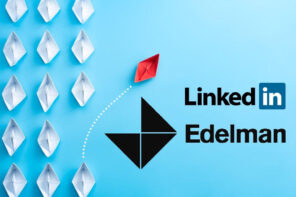
Thursday June 13, 2019
Should B2B brands consider long-term brand building?
As a sector, B2B suffers from an unfortunately sterile name. After all, what could seem more impersonal than the term business-to-business?
Of course, brands operating within that space would be short-sighted to believe that a strong brand name doesn’t matter in B2B. Some of the world’s most recognizable and powerful brands are B2B brands – which really shouldn’t come as a surprise. The benefits B2B brands enjoy from high recall and loyalty are so much more durable than those enjoyed by consumer brands which are at greater risk of being buffeted by the whims of changing personal priorities or broader societal trends.
Why Powerful B2B Brands Win Big
Unlike consumer brands, B2B brands take a significant investment at the buy-in stage. For a company to choose to use a B2B product or service, the decision will often go through many rounds of discussions, approvals and rigorous scenario testing to ensure it really is the best solution before the procurement department decides to place that all important contract.
A highly invested purchase decision and embedded processes make it very difficult to switch out a brand you have already committed to – teams need to be re-trained and new Standard Operating Protocols developed. Just think how likely you are to switch from an accounting system you’ve used for years or adopt a new courier service after all your customers have downloaded the app to manage their deliveries. As a business, switching your current sales software is a lot more difficult that switching the brand of coffee you use – and the cost of getting it wrong so much higher. If you can convince a business to use your B2B brand over a competitor, you can expect to enjoy their custom for years to come.
B2B brands also have a far greater tendency to become synonymous with the product or service they provide. Think FedEx or Salesforce. Once you achieve recall and brand awareness on that scale, it becomes increasingly difficult for upstarts to push you out of the preferred spot.
Appeal to the customers of your customers
B2B brands gain most from building brand recognition among the customers of their customers. If you think of key ‘ingredient’ brands – Intel and Gore-Tex being examples – your customers are forced to stick to your brand because their customers look for it as a stamp of quality. Moving to another brand – even one that may have identical properties to your product – would not fly with the end consumer. This is a key area where brand building definitely pays, as gatekeeper businesses are forced to stick with brands customers know, recognize and have come to associate with quality.
Build your mother brand
Branding also protects products and services from being obsolete or falling victim to advances in innovation. Even if a challenger brand develops something better or more innovative, it gives the market leader a slight headstart and a way to carry across all that built-up goodwill and recognition to an improved version of their offering once developed – even if it takes some time to do so. Building a corporate brand under which you can launch new products and services also helps you scale up and diversify your offering, all while basking in the glow of the trusted mother brand.
B2B brands benefit from having a Face
A charismatic CEO who can sell the company’s vision or eloquently deliver a narrative about how the brand has solved previous customer pain points is a powerful way to build B2B brand cachet. A B2B brand that is seen to employ great people obviously keeps attracting the best talent. And talent in a sector that often suffers from low product differentiation in practical terms can help your brand become the next big disrupter or game changer.
B2B buying is also based on emotion
Tenders are often seen as a boring but necessary evil with a lot of specifications and boxes to tick. But all things equal, how do you choose one brand over another? Even in B2B services that are highly streamlined and data led, the procurement team seldom make a purely rational decision. Brands that have emotional appeal always win. If your brand can conjure up associations of great people, superb after-sales support or constant investment in innovation – that feeling of “just being better” than another lesser or unbranded provider is enough to push the buyer in your direction. The desire to choose a trustworthy and dependable brand trumps most other considerations, including that all important one – price.
B2B branding helps short-term sales
Wondering if you should spend your budget on branding or boosting immediate sales? Thankfully it is not a binary choice as great branding supports sales and makes the customer acquisition cycle a whole lot shorter.
Great brands ultimately win more business, so don’t skimp on that branding budget.
Curzon PR is a London-based PR firm working with clients globally. If you have any questions, please feel free to contact our Business Development Team bd@curzonpr.com







Follow us